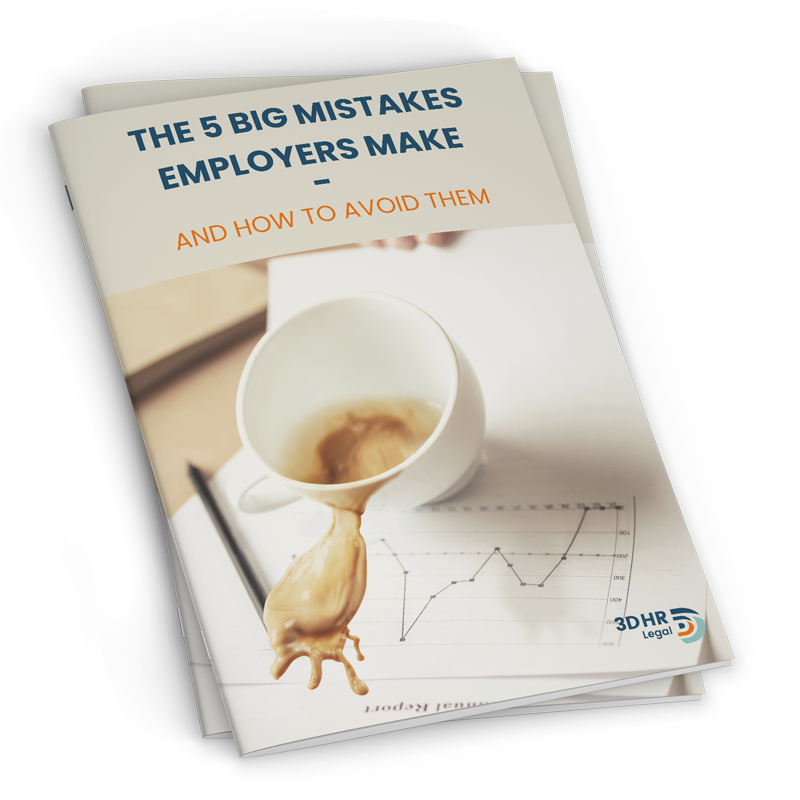New paid family and domestic violence leave provisions are in (or coming into) effect this year for all employees across Australia. This is a new initiative for the Federal Government in an effort to combat the substantial impact that family and domestic violence has on personal lives, family lives, and which flows through to our workplaces as increased illness and absence, lower productivity and higher turnover.
As business owners it’s important to know what your obligations are and how you need to manage these new entitlements.
When do the paid family and domestic violence laws take effect?
For non-small business employers (those with 15 or more employees including regular and systematic casuals) the leave became available to their employees on 1 February 2023.
For small business employers, the leave is available from 1 August 2023.
How does the leave accrue?
Unlike other common types of leave, family and domestic violence leave does not accrue based on length of service. Instead, on the day the leave commences (1 February or 1 August), or the day the employee commences employment, the full 10 days will be available for use. Importantly, the leave doesn’t accrue from year to year.
The 10 day entitlement resets on an employee’s anniversary date of employment.
In what circumstances can an employee request family and domestic violence leave?
Employees may request this paid leave if they need to use the time to make arrangements for safety such as relocation, attend court hearings, access police services, attend counselling or appointments with medical, financial or legal professionals.
Employers may choose to refuse the request if there is the practical ability for the employee to do these things outside of work hours considering all of the circumstances.
How to manage requests to take family and domestic violence leave?
It is completely reasonable for employers to be concerned about the potential additional costs to business of employees having access to additional paid leave. However, it is unlikely, at least initially, that businesses will see a large uptake in requests for this paid leave.
The very nature of family and domestic violence makes it a very personal matter. There are many people who will be unwilling to share that they are affected with their employer. Further, if employees request such leave, employers are entitled to request proof that the employee needs to do something to deal with family and domestic violence and that it’s not practical to do so outside of work.
How should the leave be recorded and managed in payroll?
The new laws state that employers are not entitled to include anything on a payslip which indicates that family and domestic violence leave is being taken, in order to protect the safety of the employee.
Payslips should look as close as possible to how they would have looked if the employee had not taken this type of leave. This means having the leave recorded on the payslip as if the employee had worked their ordinary hours on the day they took family and domestic violence leave, or showing it as another payment for performing work such as allowance or bonus. Up until 4 June 2023 or at the request of the employee paid family and domestic violence leave can be recorded as another type of leave on payslips (such as annual leave or special leave). This is a transitional period to enable employers time to update their payroll systems to prepare for this change.
Please remember, employers do still need to record leave balances and any period of leave taken for family and domestic violence leave. It is important to ensure that payroll officers are aware of these obligations, and that all leave requests are kept as confidential as possible.
How can employers assist employees who may be experiencing family and domestic violence?
The most important thing an employer can do is to create a safe place for all their employees. A place where an employee feels comfortable to raise these personal matters and knows that the employer will respond with compassion and not take negative action such as changing their terms and conditions, or terminating their employment.
Some practical initiatives to provide for employees in these circumstances include:
- A workplace policy setting out rights and obligations for paid and unpaid leave,
- Providing access to an Employee Assistance Program for counselling support, and
- Extending options for flexible working arrangements to affected employees (not just those with the minimum 12 months of service).
If you’d like help implementing any of these initiatives, please get in touch with us at hello@3dhrlegal.com.au


Recent Comments